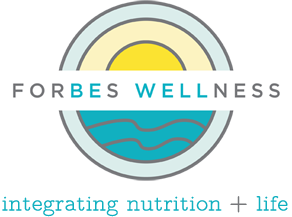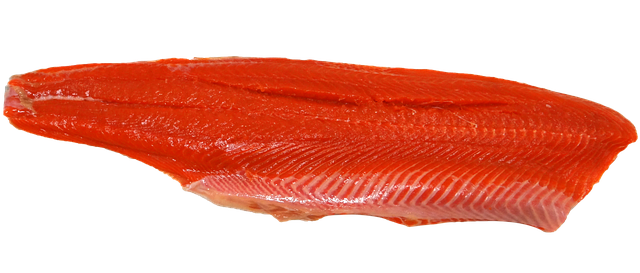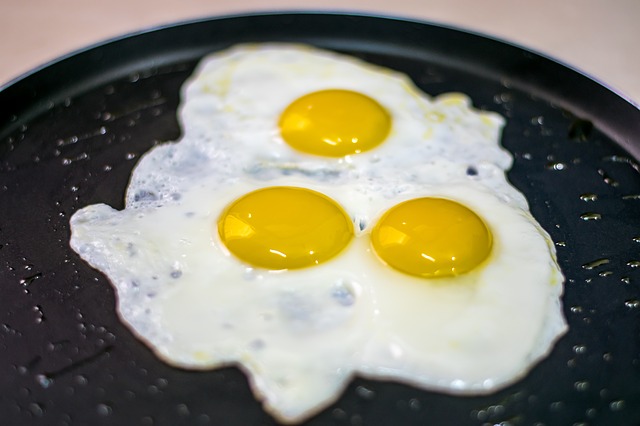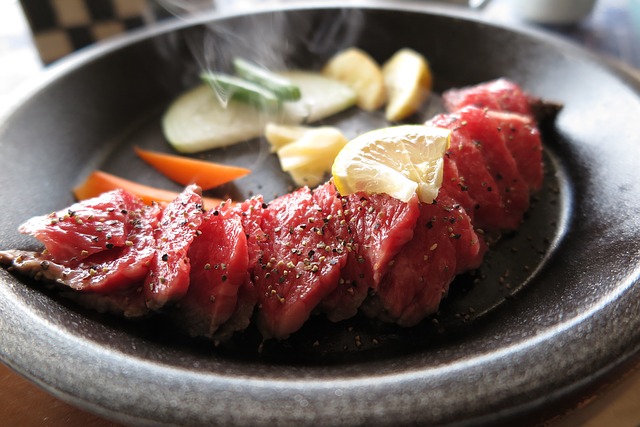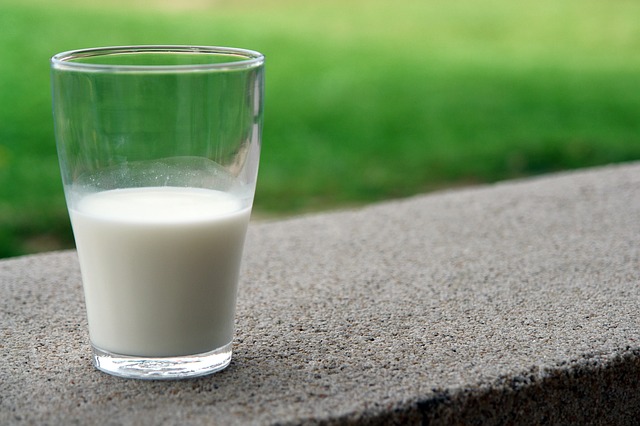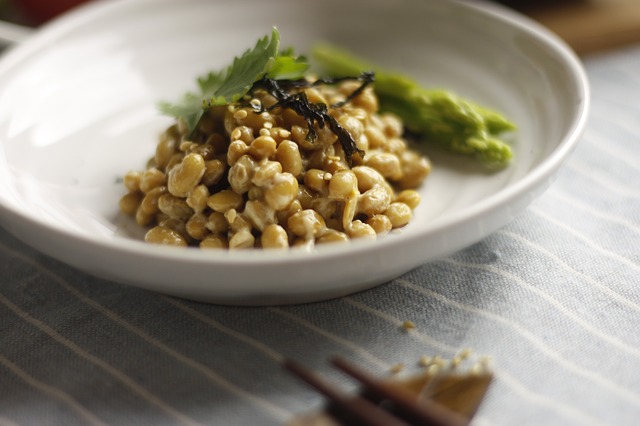pre-conception + pregnancy superfoods { + nutrients } PART TWO
Personal disclaimer: In the light of being real + raw + transparent + human + relatable + all-of-the-things – I wrote part of this article during week 16 of my second pregnancy, while eating a big, warm bowl of of mac n’ cheese. Most likely followed by a big bowl of strawberry ice cream (<– at least that was organic?). So, there’s that :).
Welcome to part two of the series all about pre-conception, pregnancy + postpartum nutrition. My goal is to provide you with functional + integrative thoughts on an optimal diet in regards to the baby-making world, adding traditional wisdom to the conventional ideas + strategies so that we can give baby the best possible start. Of course with the caveat that life can be a wild mess – suggesting that progress over perfection wins EVERY. TIME. ( aka the super-sized brownie you are craving will not delete all of your hard work! “What we do most of the time matters most…” ) In case you missed it, check out part one here – setting the foundation for a well-balanced pregnancy diet in regards to macronutrients (fats, protein, carbs + water). Today we will dive deep into the details as far as specific nutrients to highlight during this precious time, why they are important to you + your growing baby, and foods where you can find them. Evidence-based research suggests that the first 1,000 days of baby’s life (from conception to age 2) are vital for prevention of diseases into adulthood, and mama’s diet + lifestyle choices are front + center while baby is in the womb or while mama is breastfeeding (source). Let’s get right to it!
“the most important thing a mother can do is take care of her own body so that the baby can flourish later in life.” (1)
folate
Let’s start with one we all know: folate. Folate is a b vitamin that plays one of the most important roles in preconception, development of a healthy baby, and overall health for EVERYONE. It has a huge impact on nervous system health for mama + baby, supports cardiovascular system (+ our rapid production of red blood cells during this time), and specifically in pregnancy helps to prevent neural tube defects (which can result in loss of pregnancy :(). Some studies have linked folate deficiency with an increased risk of depression. Good maternal storage of folate is important in all stages of pregnancy (+ life), but this particular vitamin deserves the spotlight prior to conceiving and during the very early stages of pregnancy, as this is a crucial time for nervous system development for a healthy baby.
The current recommended amount of folate to get daily is 400mcg, although many physicians recommend getting more, especially if you have a history of neural tube defects in utero or have had pregnancies result in miscarriage. A lot of “integrative” based prenatal supplements provide 1mg (1,000mcg). I usually suggest my clients look into a prenatal that has methylated folate versus folic acid. Why? “Methylated folate” is the natural, food based form of folate, where as folic acid is the synthetic version. In many, this may not matter too much, but for people like me with a homozygous MTHFR genetic mutation (contact me if you want to learn more about this), it matters immensely as my body is less efficient at “methylating” b vitamins (most importantly folate) – which is what needs to be done when we consume folic acid vs. folate. Look for forms of folate in your prenatal that say “5-methyltetrahydrofolate” or “5-MTHF” on the label. I personally like the Thorne Prenatal. Good sources of folate include: leafy greens, asparagus, cauliflower, broccoli, parsley, beets, beans (black, kidney, chickpeas, etc.), lentils + good quality animal liver. A good goal to shoot for is to include a large handful of cooked greens five times per week for a healthy dose of highly absorbable b vitamins. ( 1 cup spinach = ~260mcg folate! )
dha/omega-3 fatty acids
I specifically placed dha/omega-3’s right here because I believe the importance of a good, healthy intake of these essential fatty acids is of uber importance (once again always, but especially now) – and our American diets are simply lacking major in omega-3’s. “Essential fatty acids,” like DHA/omega-3’s, must be obtained from the diet. It is well known that DHA plays a very big role in baby’s brain development (hello, intelligent kiddos!) and for healthy eyes/retinas, and lucky for us mama’s, infant DHA/omega-3’s depend on maternal storage of DHA/omega-3’s directly (source). So what you take in during pregnancy (+ while breastfeeding) in the form of these fatty acid’s can greatly impact your baby’s developing neural tissue (brain growth). Adequate maternal intake of this essential fatty acid also helps to prevent premature birth or a baby born with a low-birth weight (source). Our body’s are extremely smart with storing fat/omega-3’s, and do so early on in pregnancy so that mama can tap into this storage during breastfeeding – and mama needs to utilize omega-3’s just as much as her baby – they help reduce symptoms of depression and keep mental health as optimal as possible during pregnancy + the postpartum period. Additionally, DHA helps protect neurons from oxidative stress. Genetics are also at play here, making some women’s requirements higher than the average.
I personally agree with this article/scientific review, which suggests women consume 650mg omega-3 fatty acids per day while actively growing a baby, of which 300mg are in DHA form. One of the best sources of omega-3’s is seafood (salmon, mackerel, + sardines specifically) – however it is highly known that most practitioners advise pregnant women to AVOID or limit intake of fish. What’s a girl to do?
The suggestion to limit intake of your average fish I can agree with, but to avoid it I think is advice not worth taking. One big BUT – quality is everything! The high levels of mercury and other toxins in seafood is ideal to avoid as much as possible at any stage of life – even more so when growing a baby. So my suggestion is to consume two 6-oz servings of fatty fish weekly, like sockeye salmon, which would supply you with about 4,000mg omega-3’s, averaged out to ~570mg daily. Key is to make sure your fish is sustainably sourced and wild-caught (not farm raised – which is what we are getting most of the time when eating fish out – unless it is clearly marked “wild-caught” – and honestly even then it is best to ask exact sourcing). Visit this site for more information on what you can eat safely and happily while pregnant and what is best to avoid during this precious time.
Where else can you get these power-packed nutrients? Fresh, cold-water fatty fish (salmon, sardines, mackerel, herring) are your best option for a concentrated food source of omega-3’s, but you can also add ground flax seeds, chia seeds, walnuts, pasture raised eggs + grass-fed organic ghee to your diet, and some not-so-obvious sources include fresh basil and dried oregano. An easy, accessible salmon option is a sustainably sourced canned product (look for sockeye salmon – which is a wild-caught variety). For fresh salmon, the deep, red color will give away a good wild-caught option (+ therefore an excellent source of dha/omega-3’s!).
Obviously food sources are the best way to meet our dietary needs, but sometimes we can use a little help ( or we just don’t like fish! ). I personally take, and recommend to my prenatal clients, a pure + good quality omega-3 supplement daily while pregnant or breastfeeding.
choline
Okay phew we made it through the importance of omega-3’s for mama and baby! Moving along to the next vital nutrient during pregnancy – choline! Choline is a b vitamin (B4) that does not get the attention it deserves during pregnancy from a conventional standpoint. Have you ever been told “congrats on your pregnancy! Now eat more choline!”…? Unfortunately, many of us are or have previously been deficient in this essential nutrient (myself included!), especially pregnant women (NHANES reports that only 14% of pregnant women consume enough choline). Double whammy – the majority of prenatal vitamins as well as other multi-vitamins DO NOT contain choline, so our dietary intake is dependent upon food sources (unless you are supplementing with a stand-alone choline supplement).
“Pregnancy and lactation are times when demand for choline is especially high; transport of choline from mother to fetus depletes maternal plasma choline in humans. Thus, despite enhanced capacity to synthesize choline, the demand for this nutrient is so high that stores are depleted.” (2)
Similar to folate, maternal intake of choline (especially during early pregnancy) helps complete neural tube closure, preventing birth defects. In fact, according to this study, pregnant women who fell in the lower 25% quartile for choline intake were four times as likely to have a baby with a neural tube defect. And similar to omega-3’s, choline intake later during pregnancy influences development of baby’s brain and memory. Choline also helps to support development of healthy vision and hearing. Basically, adequate intake/mama’s storage of choline helps make baby smarter! In addition to brain development, choline deficiency can increase the risk of congenital heart defects (3).
As we can see from the above quote that the majority of our dietary intake of choline, as well as the choline our body synthesizes on it’s own, is shunted to our growing baby during pregnancy. Therefore, pregnant women require more of this vital nutrient – The Institute of Medicine recommends 450mg daily for those expecting, and 550mg for those who are breastfeeding (mama’s milk is an excellent source of choline for our growing baby’s brain, even outside of the womb! But guess where that comes from? Mama’s storage!) What are good sources of choline to get during pregnancy? Pasture raised eggs (1 egg contains about 140mg of choline – EAT. THE. YOLK!), grass-fed beef liver (I know, I know…), collard greens, brussels sprouts, cauliflower, chicken, turkey, and salmon. I usually suggest to my preggo clients that can tolerate eggs to eat 2-3 pastured eggs (yes, THREE) daily, in addition to foods listed above. As far as supplementing, I do not usually suggest this across the board rather on an individual level – I do a thorough nutritional analysis + healthy history to see where my clients are, and go from there.
b vitamins
We have already discussed two of the major b vitamins important in pregnancy + lactation (folate + choline) – however I would not be doing this post justice if I stopped there. B vitamins in general are super important during pregnancy, + it is widely known that under stress (which, who isn’t??), this group of necessary vitamins are zapped. B6 + B12 are also crucial micronutrients for developing healthy neurological function, brain growth, spinal cord + nervous system growth/development. Biotin is a b vitamin that is necessary for a healthy pregnancy and proper growth for your baby as well. Grouping these together serves the purpose I am trying to convey – don’t skimp on your leafy greens. Getting adequate amounts of b vitamins daily as you are growing a human is important, as the b vitamins are water soluble, so our body’s do not store them. Replenish your needs by including a handful or more of leafy greens daily (as suggested above), and good quality animal protein + fish throughout your week. Other good sources of b vitamins include eggs, nuts/seeds, beans, + oats. If you are a vegetarian (or just have a pregnancy-induced meat aversion!) – it may be in your best interest to get your b-12 levels checked and possibly supplement. B vitamins are also a part of your prenatal multi (my suggestion is to make sure both the folate and the b-12 in your specific supplement are the methylated forms – methylcobalamin for b-12 and for folate see above).
iron
Iron is a micronutrient of which mama’s-to-be are often deficient. The need for iron progressively increases into the third month of pregnancy, as the fetal tissue accumulates iron from the mother to be used for, you guessed it, growth. Inadequate maternal intake of iron-rich foods, coupled with the increased need for iron leaves mama at an increased risk for developing iron-deficiency anemia. Low maternal iron storage can negatively impact baby’s growth + development, as well as increase risk for preterm labor, a baby born with a low birth weight, and postpartum hemorrhage. An additional research study has found that poor iron intake during pregnancy is associated with a greater chance of cardiovascular risk once the baby is an adult (source).
The importance of adequate iron intake continues into the breastfeeding months, as baby’s iron status will reflect that of mama’s. It is not uncommon to see babies 6 months to 3 years become iron deficient. The World Health Organization (WHO) recommends women consume 30-60mg of iron daily while pregnant. Why so big of a gap? This is where individuality comes into play (as it always does…). There are many factors that influence our body’s unique ability to absorb iron. Genetics, diet (food combination + what sources of iron we are consuming), and nutrition status prior to conceiving can all impact how well we absorb this vital nutrient. The good news is your doc will most likely be testing you for anemia during the early stages of your pregnancy – and you can know where to go from there.
There are two forms of iron: heme-iron + non-heme iron. Heme iron is absorbed in a greater capacity compared to non-heme iron (25% vs. 2-13%). Heme sources of iron include animal meat, fish + poultry. Non-heme iron sources are plant-based, and include: beans, peas, lentils, enriched whole grain cereals, oats, spinach, + potatoes + eggs. Consuming these foods with a good source of vitamin C (such as citrus fruits, red peppers, broccoli, strawberries) is ideal, as vitamin C + heme-iron (meats) positively enhance absorption of the non-heme iron found in plant based foods. So top that warm bowl of oatmeal with a hefty amount of strawberries, and be sure to consume higher quality animal meats frequently throughout your week.
Bottom line – if you are found to be deficient in iron, focus on getting a healthy serving of good quality, humanely raised animal protein daily, and be sure to include a good source of vitamin C. Consider supplementing if your still not getting enough.
calcium
Calcium needs also go up when you are expecting – pregnant women need about 1,000mg of this nutrient daily, consumed in smaller amounts throughout your day. As calcium is important for our bones to be strong, during the fetal period, calcium is being shunted to baby to help their little body’s develop a strong skeletal structure + teeth. Calcium also plays a role in nervous system + muscle development Baby takes anywhere between 50mg to 300mg of calcium from our body daily (more in the third trimester), which means we need to make sure we are getting enough in our diet’s while we are expecting.
For mama’s, calcium is important because a deficiency could cause hypertension during pregnancy, preterm labor and puts you at greater risk for developing osteoporosis. Good sources include full fat dairy products if you tolerate dairy, such as: plain yogurt, Greek yogurt, cottage cheese, milk, kefir, + cheese. Non-dairy milk products have also been fortified with calcium. Another great source that is less thought of is salmon with bones (WHAT?!). Some salmon varieties (more likely with wild caught) include the bones. Don’t be afraid of eating these – they are actually really good for you! (Side note – also really good for your toddler/kiddo as long as they have no chewing/swallowing difficulties). Canned salmon with the bones and liquid, sardines with bones, broccoli, kale, spinach, almonds, collard greens (1 cup cooked = ~265mg), + sesame seeds (1/4 cup = ~350mg) also include a good source of calcium.
Get your calcium by adding organic milk/milk alternatives to your oatmeal/smoothies, having an afternoon snack of organic plain Greek yogurt sprinkled with chopped almonds, and including your cooked greens ( <– there they are again!) daily and of course those weekly salmon-centered entrees! Also, continue this higher intake throughout your postpartum period if you are breastfeeding, as a lot of your intake will be passed on to baby through mama’s milk.
vitamin d
Oh the power of a good + healthy vitamin D level, not just for mama’s, but for all! There has been so much research on this fat soluble vitamin lately – and it is getting the attention it deserves. The Institute of Functional Medicine suggest an optimal blood volume of vitamin D (measured as 25(OH)D) of 50-80ng/mL. This is higher than what most labs report as “normal” (at least 30ng/mL). Low blood serum levels of vitamin D has been shown to have a relationship with pregnancy induced hypertension, development of gestational diabetes, preterm delivery, increased chances of primary c-section, recurrent pregnancy loss, and postpartum depression (source). As with most of the above and below listed nutrients, an optimal vitamin D level is also just as important during the postpartum period, as the infants need for vitamin D is also high, and they will take what they can from breast milk.
My suggestion for all those who are trying to conceive, are already pregnant, or are in the postpartum period – get your vitamin D serum levels checked! Ask your doc to measure your 25(OH)D. And check again as you either become pregnant, or after you have your baby. Don’t just guess and assume you should be supplementing regardless.
The best source of vitamin D is my good buddy S U N S H I N E. Which is not always practical, and hello… we need to balance our sun exposure with anti-aging skin protection. What’s a girl to do? If it is the summer months and you live in an area that gets good sunlight, I usually recommend my clients spend 10-15 minutes outside, during the middle of the day, with arms/legs exposed three times a week. You should see a pink-ish tone to your skin, but not to the point of sun damage. There are so many factors that play into how much vitamin D will actually be created naturally by your body, including age, skin tone, time of the day, physical location, + how much skin is exposed.
Although there are not many food sources of vitamin D, you won’t be surprised to hear me say eat more salmon + sardines to get a good amount. A 4oz serving of salmon has roughly 500iu of vitamin D. Egg yolk, cod liver oil (a supplement many women choose to take for fertility or pregnancy/postpartum), and cow’s milk also have variable amounts of vitamin D.
Supplementation is sometimes (I will even say most of the time) necessary during this season of life. ALWAYS get checked first, and talk to your doctor. This study suggest for those who know they are deficient, supplementation of 4,000iu (vitamin d3) daily is safe and effective, and helps protect mama + baby from adverse effects of low serum vitamin D. (For reference – a typical prenatal contains 400iu per serving). And good news for breastfeeding mama’s – as long as you are supplementing 4,000iu-6,000iu daily, your little one may not need their own vitamin D supplementation. ( <— Again, checking your levels to see where YOU are FIRST is of vital importance).
Worth mentioning here – and this could be an entire new post – is the fact that how well vitamin D functions within our body is dependent upon other nutrients + vitamins that are currently present. Cofactors such as magnesium, vitamin K2 (discussed below), zinc + vitamin A all work together with vitamin D, creating a deep interconnection to how our body functions. Eating a balanced, whole foods based diet, and supplementing where you know you have been found to be deficient will help keep this in rhythm. Read this article for more information.
(personal insert – I spent tons of time outside, took a general multivitamin, ate my heart out of some salmon and was still found to have a 25(OH)D level below 30ng/mL prior to conceiving my first sweet baby boy).
vitamin a
Adequate amounts of the fat soluble vitamin A are important right out of the gate with a new pregnancy. Vitamin A plays a role in the continuation of pregnancy, development of a healthy heart (which begins within 2-3 weeks!), nervous system, circulatory system, healthy bones, respiratory system, and other organs. Low vitamin A status is also associated with anemia (source). Vitamin A deficiency can occur from an inadequate intake of milk/dairy products + a low intake of beta-carotene rich fruits/veggies, and occasionally from an internal malabsorption issue.
The recommended daily intake if vitamin A for our mama’s to be is 770mcg (more for lactation). How can you make sure you are getting enough vitamin A during your pregnancy? Ensure that you are consuming a good amount of the following: sweet potatoes, carrots, leafy greens, broccoli, eggs, and grass-fed ghee/butter. Another amazing source of fat soluble vitamins (A, D, E + K) and B vitamins is …. grass-fed beef liver (or you can supplement grass-fed desiccated liver supplements). Your prenatal will also have a good source of vitamin A. Eat these foods, as well as any other fat-soluble vitamin rich food, with a good source of fat (such as grass-fed ghee, butter, olive oil, avocado, or nuts/seeds) to increase absorption.
vitamin k2
And lastly, vitamin K2. This fat-soluble vitamin has been often referred to in the literature as the “missing nutrient.” Be on the lookout my friends, we are going to be hearing more about the importance of this nutrient in the future, as it is beginning to become heavily researched. Why now? Until recently, vitamin K1 and vitamin K2 have been clumped together in the health world, with the majority of information, and thus recommendations, stemming from what we know about vitamin K1. But oh, the importance of K2!
Vitamin K2 helps support the growing fetus, and specifically helps put calcium where it is supposed to go in mama + baby (bones, skeletal structure, + teeth versus kidneys, heart, blood). This may not seem like a big deal, but it is – for babies, it helps support ideal cranial development while in the womb. And many are deficient in the vitamin. There are no set recommendations for how much vitamin K2 we need to get daily, but a trusted source I follow recommends 100-200 mcg daily for the average adult. My thoughts are that for pregnancy, we need to be getting at least this amount. Where can we get this? The best sources of k2 are animal products – specifically liver (I know!), chicken + beef. Other sources include egg yolks from pasture raised eggs, grass-fed ghee, grass-fed butter (not commercial butter), and for all of my fellow cheese friends – hard + soft cheeses (from grass-fed cows). Vegetarian sources of k2 include natto (fermented soybeans), + sauerkraut (because of the strains used for fermentation).
A quick note on Vitamin K2 + vitamin D….as mentioned above, many vitamins + nutrients work together synergistically. Vitamin K2 + D are two that work hand-in-hand for many health benefits (as well as in tandem with vitamin A + calcium). It is erroneous to take excess amounts of vitamin D without a) knowing what your numbers are and b) not paying attention to your vitamin K2 intake. (This is something I did not know when I began supplementing d3 when I found out I was deficient…) I plan to write a post about the intricate relationship between d + k2 in the future, so be on the lookout. In one example, while vitamin D works to get calcium in our body, vitamin K2 works to shuttle the calcium into our teeth + bones. This is why the best thing we can do is to eat whole foods. Foods in their whole form. The whole egg. Full-fat dairy varieties. Why? Because these foods come naturally packed with good overall nutrient balances.
If you do choose to supplement vitamin D based on a diagnosis of low/non-optimal blood levels, make sure you are eating plenty of foods with k2, or ensure that your d3 supplement also comes with k2 (as many are these days). Dr. Kate Rheaume-Bleue, who wrote the book “Vitamin K2 and the Calcium Paradox: How a Little-Known Vitamin Could Save Your Life,” suggests taking 100mcg k2 (in MK7 form) per 1,000iu of d3. This is something I personally follow.
bringing it all home…
We made it! I promise you guys we will never see a post this long again, but I did not want to leave anything out, as I feel hugely passionate about this subject. I hope that you found some take-home nuggets, and would love to work with you further on personal level if you have any nutritional needs related to conceiving or achieving optimal health for yourself + baby during pregnancy.
my final food thoughts while making a baby:
Aim to eat 2-3 pasture-raised eggs (YOLK, Y’ALL!) daily.
Eat at least 1 large serving of cooked greens daily, preferably more.
Eat at least 2 other colors of veggies daily (reds/oranges/deep purples/etc.).
Eat 2 six ounce portions of wild caught salmon or sardines weekly.
Eat a good source of healthy fat with EACH meal (<– to enhance micronutrient absorption).
If you are prone to iron deficiency, include a good source of grass-fed animal meats (like ground beef) 2-3 x week, with a vitamin C rich food.
Eat a good source of additional animal protein (free-range chicken, turkey, etc) daily, or a few times per week, or ask about what you may need to supplement if you are vegetarian.
Eat full-fat, organic diary products if you tolerate (bonus if you get this from a local farm, or Jersey cows!)
Include a good variety of fermented foods (sauerkraut, kefir, yogurt, natto, truly fermented veggies) daily (<– to promote healthy gut microbiome for mama + baby!)
Sprinkle in some nuts/seeds + beans weekly.
*( don’t freak out about the above list, most of this you are doing without even knowing it… )
And last, but certainly not least: don’t stress about what you perceive to do “wrong” or “right” during pregnancy in regards to food. All we can do is our best…It is obviously ideal to not overdo the processed/white/refined foods + sugar during pregnancy – but I choose to frame it (both personally + as I am working with clients) as eating what we can to make sure we are nourishing our baby, and not worrying about the foods that sneak there way in that provide “little nourishment.” After all, there is such a thing as “feeding the soul.” 🙂 So celebrate the tiny wins, my friends!
That’s all, folks!
Medical disclaimer: I am not a doctor. This information is just that – information, and is not to be used to diagnose or treat any medical issue you may have. Always consult your doctor before implementing any of the above strategies.
References:
(1) The effects of maternal nutrition on the developing fetus later in life. Britney Ellis; Lauren Giannetti; Julie Fagan PhD.
(2) https://www.ncbi.nlm.nih.gov/pmc/articles/PMC2441939/
(3) Craciunescu CN, Johnson AR, Zeisel SH. Dietary Choline Reverses Some, but Not All, Effects of Folate Deficiency on Neurogenesis and Apoptosis in Fetal Mouse Brain. J Nutr.2010;140(Jensen):1162-6.
